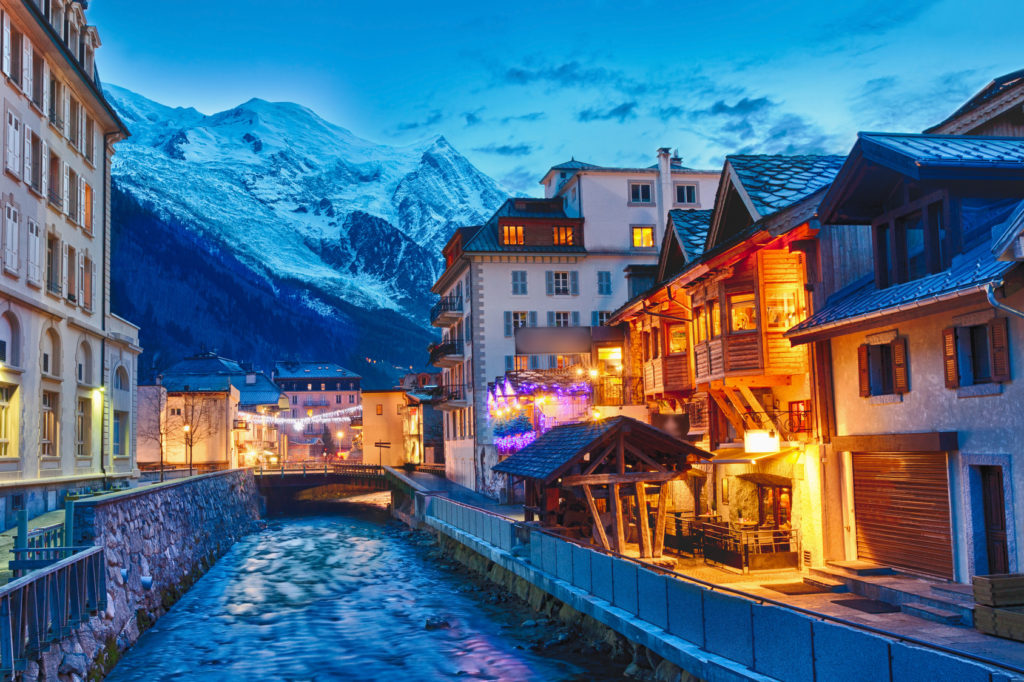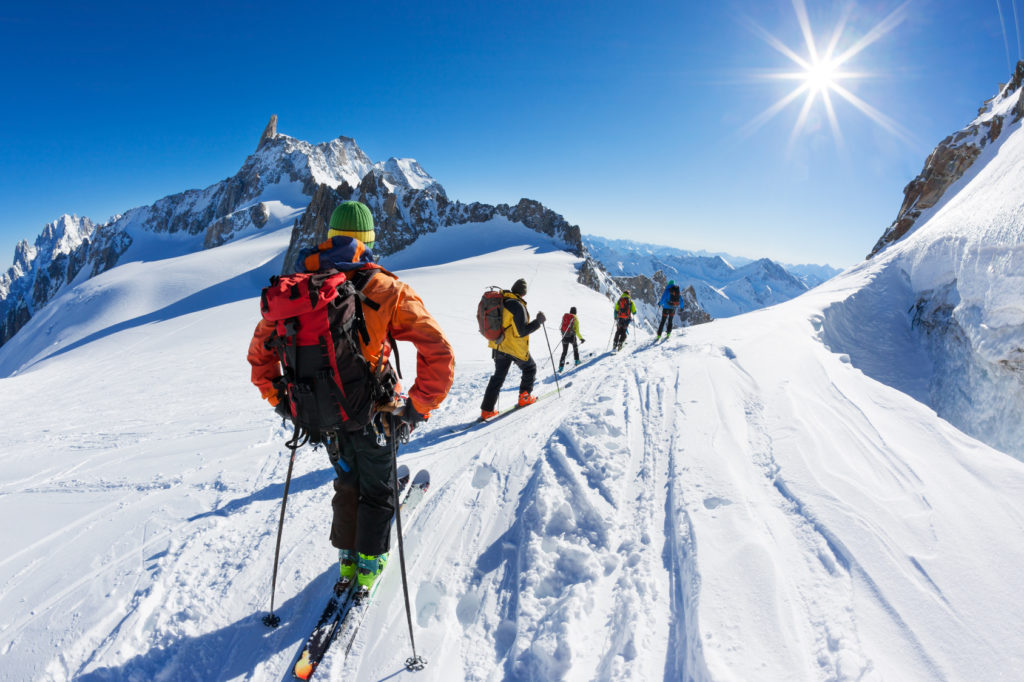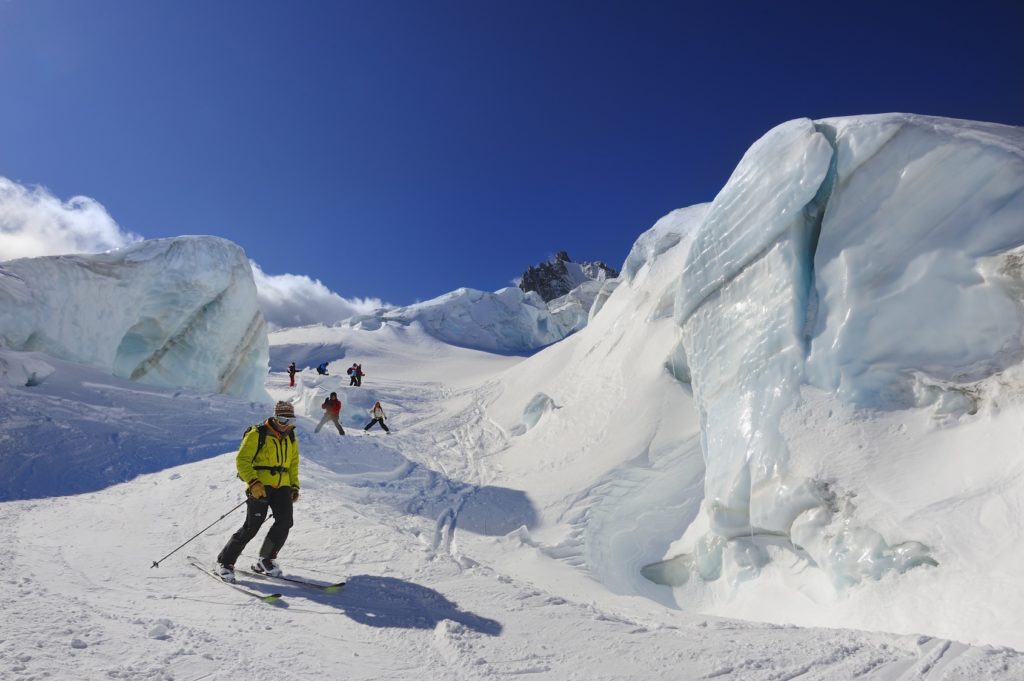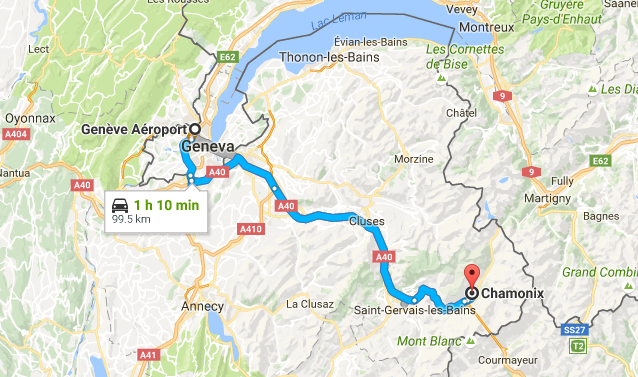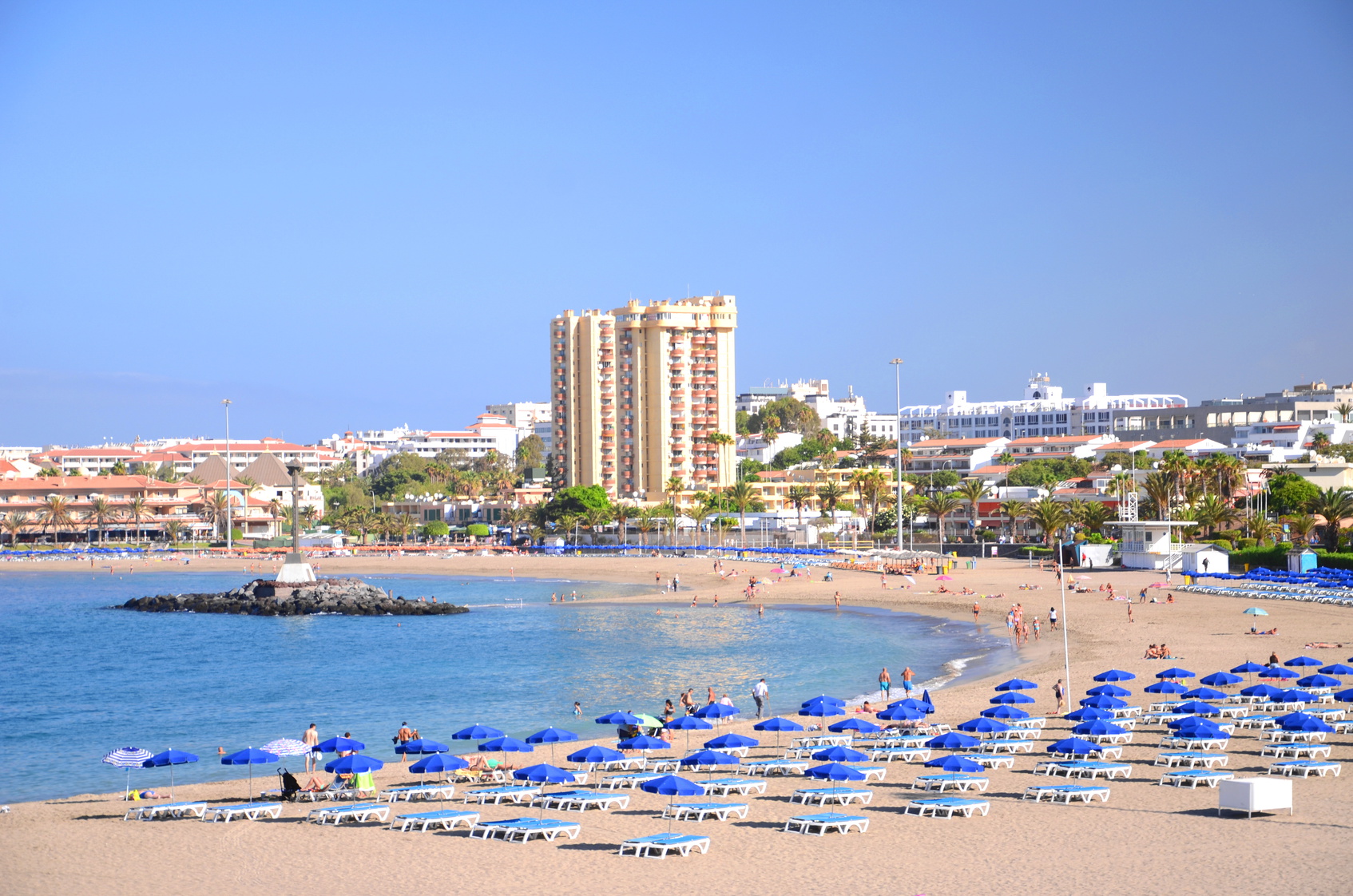If you are a thrill-seeking skier who considers yourself an expert on the slopes, Chamonix is a great place to come to put your skills to the test. Found at the base of Mont Blanc (the highest summit in the Alps), the skiing and amazing views in this region are world-famous.
During your stay at Chamonix, don’t forget to check out the superb culinary scene!
One reason why Chamonix is such a popular destination with advanced skiers is the legendary and fabled Valleé Blanche off-piste ski route. If you manage to master this epic 20km long route with an imposing descent of 2700m, you will be sure to have a life experience that you always cherish.
Along the way you encounter mesmerising views, seemingly endless slopes and adrenaline-pumping descents, as well as a real sense of being in the wilderness with the high mountain environment. Be warned, there are many crevasses and often a high risk of avalanche; a mountain guide is recommended.
Before You Start
Valleé Blanche is not your average skiing route, so you need to consider a few things before you set off. Firstly, you should make an honest assessment of your ski standard and how far you want to push yourself (there are routes of varying difficulty). Do not stretch yourself too much, as this can be a dangerous route. You must also listen to those in your group and make a decision between you. If you have any concerns whatsoever, you should definitely take a guide with you. It is not a necessity for the more confident skier, but many experts still take a guide as they can help with navigating the arête.
There is usually a reservation system for the cable car, but you may be able to arrive and get straight on. For a straightforward trip, you may want to book in advance. You could also ask at the resort for any tips: what time is best to go, what kit you should take with you, or their recommendations for crossing the arête.
The Arête
Before making the descent, there is the small matter of navigating the world-famous arête from the cable car station. Do not underestimate this section – unfortunately, people fall from this ridge and die each year due to the 50-degree pitch on each side. During high season, you can expect the ridge to be dug out and a safety rope provided by the lift company, but you must stay focused at all times. You may want to bring a pair of crampons and wear a climbing harness which you can attach to the safety rope. Having a guide for this section is smart, and they may well rope everyone up and wear a harness and crampons too.
As mentioned, the resort can recommend a basic kit that will get you across if you are not using a guide. In addition to gear for traversing the arête, this should also include survival blankets, high factor sunscreen, glacier glasses, a thermos and glucose tablets. You should also note the rescue services number in your phone. It is unlikely that these will be needed, but it is better to be safe than sorry.
Provided you keep your focus – and you do not suffer from chronic vertigo – traversing the ridge should be straightforward.
The Routes
There are four main routes to choose from which vary in difficulty, so be sure to pick the one which is best suited to your level. No matter which you pick, you will be treated to breathtaking views and have an unforgettable adventure on your way down.
Voie Normal is the classic and most straight-forward route, which sees you essentially follow the valley floor. After traversing the arête, the route veers right at the impressive rock formation Le Gros Rognon (you can’t miss it) and the valley will narrow significantly. Here you will pass glimmering ice falls and large crevasses to your right and séracs to your left. You should remember that you are skiing over snow bridges with crevasses beneath you, so you need to be able to ski a red piste without falling down to attempt this route. It’s also a good idea to stick to the existing tracks.
After this exhilarating section, you can stick to the left side of the valley and head down to Refuge du Requin to recharge with a well-deserved lunch or drink. Next comes a flat section on Mer de Glace in which you zigzag between crevasses; here you can see the famous Drus summits. From the bottom, you can either jump on a train at Montenvers or ski/walk back to town if you have any energy left.
The other routes are The “Real” Valley Blanche, The Petit Envers du Plan and Grand Envers du Plan. These are more advanced and interesting, but they are also more dangerous and have very steep pitches. As a consequence they are better suited to confident advanced skiers.
How to Get to Chamonix
This advanced skiers’ paradise is easy to get to and close to a handful of airports. The closest, and with regular flights with major airlines, is Geneva (GVA). This is 85km from Chamonix, with a transfer taking just an hour. Chambéry (CMF) is 135km and roughly 2 hours away, whilst Grenoble (GNB) and Lyon (LYS) are both 220km from the area, with a transfer time of around 3 hours.
After touching down at any of these airports, you will want a stress-free and comfortable journey with your kit to Chamonix. By pre-booking a private Shuttle Direct transfer, you can sit back and enjoy the ride and not have to worry about using public transportation.
About Shuttle Direct:
Shuttle Direct provide reliable, affordable and comfortable transfers from airports, train stations, hotels and places of interest throughout Europe.
They are experts in winter transfers in the French, Austrian and Italian Alps and their shared and private options can cater to all budgets and group sizes. They can also transport your equipment for free if you indicate this at the time of booking.
Book your transfer today for a simple and straightforward journey.


